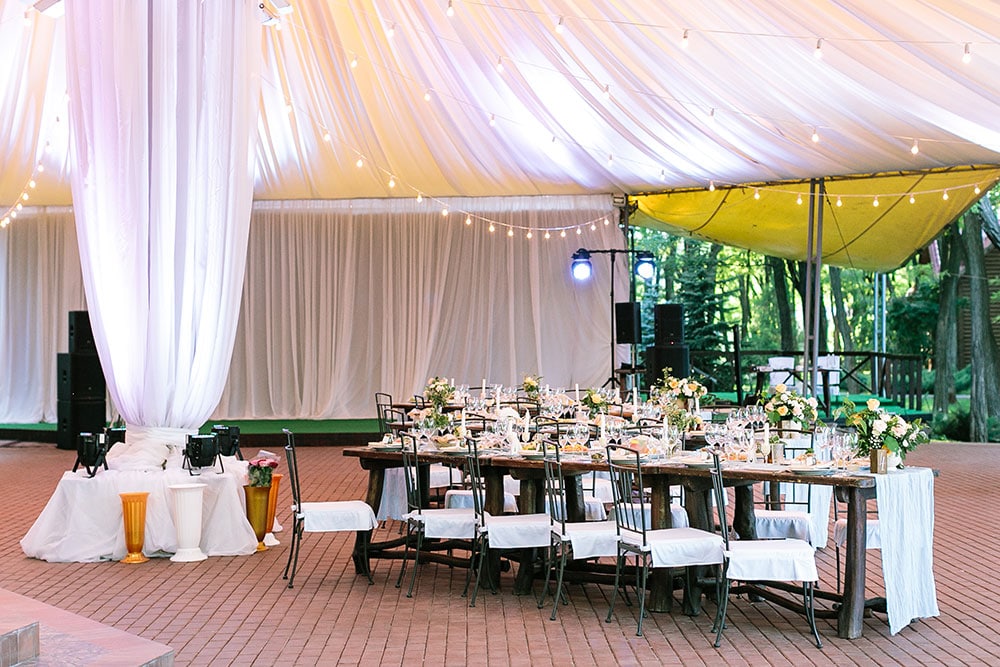Event Tents
Tent Fabric Choices for Your Outdoor Event
When researching tents and suppliers for an outdoor event, it can be helpful to have an understanding of the materials that are available for the equipment. In a perfect example of form fitting function, different tent materials will serve different purposes and be best suited for varied applications. What are the pros and cons of the most common tent fabrics, and which will be most fitting for your upcoming outdoor event?
Nylon
Nylon is an extremely popular tent fabric, and its lightweight property makes it perfect for backpacking tents. When the tent is small in size it will have smaller walls, and that makes it resistant to the tears that can easily happen from wind or debris that is often seen with larger panels. If considering a nylon tent for your outdoor event, make sure to look for “ripstop” technology in the fabric, which is weaved together in a way that will reduce runs or rips.
Polyester
Polyester is probably the most popular tent fabric on the market today, because it’s a reliably durable man-made material that is far more difficult to tear than nylon. Other benefits include less weight than cotton, resistance to stretching in the wind and fading in the sun. Polyester is a very “middle” ground material, and while it is considered durable, you need to consider variable qualities such as denier, thread count and waterproofing to make it a more viable option for your outdoor event.
Cotton Canvas
Cotton Canvas tents were all the rage in times past, but they are relatively rare today. Untreated cotton is not only sustainable and more environmentally-friendly than many synthetic options, the thickness of the material makes it a natural insulator against outside sounds and the elements. This can help reduce heating or cooling costs in temperate seasons, although it is not naturally weatherproof and will require additional preparation, essentially a “coating” to keep dry. One major negative to cotton canvas tents is the weight. This dense fabric is much heavier than synthetics like nylon or polyester, and transporting larger canvas tents will require extra consideration.
Coated Cotton
Coated Cotton, also known as Polycotton, shares many of the attributes of a plain cotton, but it’s not as natural of a tent fabric. Polycotton tent fabric is weaved with a waterproofing, protective material when its created, or it is coated with a product afterwards. Like a straight cotton, it is a thick and durable material that is sound dampening and insulating, but it will still be heavier than some of the more weather resistant synthetics.
Vinyl
Vinyl as tent fabric is probably the most common tent fabric today for large outdoor events. Not only is vinyl lighter weight than a material like cotton, it is incredibly waterproof and versatile, and is gaining in popularity because of its durability and flexibility for use.
Consider Your Tent Fabric Options
When planning an outdoor event, it pays to do your research and to understand which tent fabrics will meet the needs of your engagement. With over 30 years of experience, the experts at Tent Supply can help. Contact us today for more information and for a customized quote for your event!

